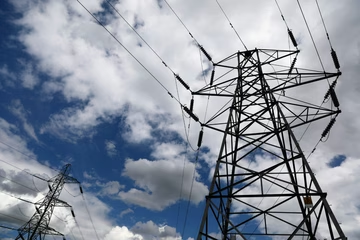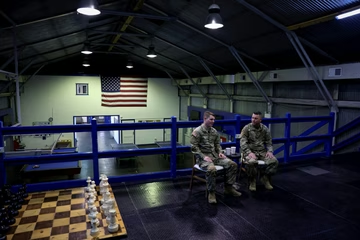
The migrant situation in Bosnia and Herzegovina is stable, with around 1,700 migrants currently housed in four reception centres, primarily in Sarajevo and Una-Sana Canton, Laura Lungarotti, Head of the International Organization for Migration (IOM) mission to Bosnia and Herzegovina and Regional Coordinator for the Western Balkans told Anadolu agency.
“The situation with migrants in Bosnia and Herzegovina has been balanced for several years. At one point in 2023, we saw a slight increase in arrivals, but this year we are seeing a significant drop,” Lungarotti stated. She noted that the current number of migrants in Bosnia is around 1,700, while the capacity of the reception centers is over 4,500 beds, indicating they are not fully occupied. The migrants mainly come from Syria, Afghanistan, Morocco, and other countries.
Regarding the Syrian nationals arriving now, Lungarotti explained that many had been in Turkey for years and are now attempting to reach other European countries. “Most of these migrants have tried to cross the border and enter the European Union at least once to three times. Many are found and returned to Bosnia, often forcibly. There has been an increase in security incidents, and the activity of smuggling groups or human traffickers is on the rise,” she emphasized.
Lungarotti further explained that IOM no longer faces issues with accommodating migrants due to sufficient capacity in the centres. However, the challenge now is the rapid movement of migrants, often facilitated by traffickers. “These traffickers largely control the situation, which has become a security issue. We need to address how to deal with these traffickers,” Lungarotti clarified.
She also described human trafficking as a complex crime, noting that increased actions by authorities in Bosnia and Herzegovina are evident. “It is not just Bosnian authorities; security forces from other countries in the region and Europe are involved. Yet, despite all efforts, the number of traffickers arrested remains low.”
Regarding the tragic accident on the Drina River in late August, Lungarotti commented, “This was a tragic event where 12 people died, including a child. Survivors, including unaccompanied children, were provided with psychosocial support and transferred to reception centres for further assistance. These people are desperate and trying to continue their journey searching for a dignified life.”
To prevent such tragedies, Lungarotti suggested finding alternatives. “One alternative is to regulate migration and assist people in finding jobs where they are, reducing the risks they face during their journey.”
She also highlighted the potential benefits migrants bring, stating, “European countries could address some of their labour shortages with the skills migrants bring. However, migration is often viewed through the lens of security rather than as an economic and social opportunity.”
In 2023, Bosnia and Herzegovina issued 5,000 work permits to foreign nationals, and Lungarotti pointed out, “The number of people seeking employment here is much higher than those just passing through.”
For migrants to stay legally, they must belong to specific categories, such as refugees or victims of trafficking. Lungarotti stressed that Bosnia and Herzegovina must regulate foreign labour to create legal employment channels and change the perception that the country is merely a transit point.
Kakvo je tvoje mišljenje o ovome?
Učestvuj u diskusiji ili pročitaj komentare





 Srbija
Srbija
 Hrvatska
Hrvatska
 Slovenija
Slovenija



























































